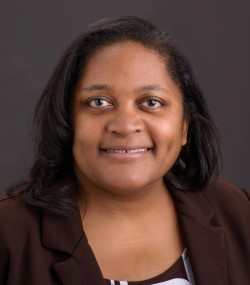MO-CPAP: Helping Families Find Psychiatrists for Their Children
- Written by Laine Young-Walker, MD

It’s a familiar story.
A 14-year-old displays erratic moods, sleep complaints, and plummeting grades. A parent is shocked to learn it will be many months before they can secure a visit with a child and adolescent psychiatrist. Meanwhile, the family watches helplessly as the youth’s behavioral health challenges worsen.
I see this sad reality almost every day in my work as a child and adolescent psychiatrist.
In another scenario, the 14-year old’s parent seeks help first with the youth’s primary care provider (PCP). Their PCP can access professional consultations and receive support to treat mental health disorders. The parent schedules an appointment within days with a provider they know and trust, there are no extra challenges of time or transportation, and no issues of stigma to create barriers.
The Missouri Child Psychiatry Access Project (MO-CPAP) works to make this type of timely behavioral health care across the state through strategic supports to PCPs. Missouri has one of the largest shortages of mental health professionals in the country. Access to behavioral health care for children is especially problematic. MO-CPAP’s mission is to alleviate this urgent situation.
A global shortage of child and adolescent psychiatrists creates extended waiting periods. The situation creates formable barriers to timely treatment for children and youth. Limited access to a psychiatrist causes many children to go without the specialized care they need for a chronic condition at a crucial stage of their development.
The National Alliance on Mental Illness reports approximately 25% of children at any given time live with a behavioral health concern. In Missouri, where our population includes 1.4 million children under the age of 18, this means 362,000 children in the state need behavioral health care. At the same time, Missouri only has 146 practicing child psychiatrists.
Here’s a more concrete picture of this desperate shortfall. If we could line up all the Missouri children and youth who need behavioral health care (1 yard apart), the line would reach 206 miles, spanning most of the state east to west. The line of child and adolescent psychiatrists in Missouri who offer appointments to serve those children would measure approximately 1.5 times the length of a football field.
The crisis proves more daunting for rural communities. The Federal Health Resources and Services Administration (HRSA) notes all Missouri’s 99 rural counties (out of 114 counties) have a shortage of mental health professionals. Fifty-seven rural counties have no licensed psychologist or psychiatrist.
We know from previous research about 75 percent of children and adolescents first present mental health concerns in the primary care setting. In this mental health care desert, it is necessary for primary care providers to fill the void whether they have the resources they need or not. According to the American Academy of Pediatrics, 65% of pediatricians surveyed reported they lacked training in the treatment of children and adolescents with mental health problems; 40% indicated they lacked confidence to recognize these health concerns.
Enter the Missouri Child Psychiatry Access Project—MO-CPAP.
MO-CPAP is a HRSA and Missouri Foundation for Health funded program committed to elevating the knowledge base and comfort levels for pediatric PCPs. The program provides no-cost training and support for its participants, thereby equipping providers with the tools they need to care for children with mild to moderate mental health concerns.
MO-CPAP began in 2018 in St. Louis before expanding to central Missouri in 2019. In October, the program was funded to expand services to all of Missouri. PCPs, family physicians, pediatricians, physician assistants, and advanced practice nurses can all enroll. Nearly 450 PCPs have registered to date; 100% of Missouri pediatric PCPs are welcome to participate. MO-CPAP offers enrollees these services:
- Telephonic consultations with child and adolescent psychiatrists regarding screening, diagnosis, and management of behavioral health issues
- Linkage and referral services to connect their patients to community-based mental health care and other resources
- Education and training in identification, assessment, and treatment of mild to moderate behavioral health issues.
MO-CPAP capitalizes on the knowledge that for many families, PCPs are uniquely suited to address mild to moderate behavioral health care needs. The program follows a best practices model developed in Massachusetts 18 years ago. Today, nearly 40 states across the country have now embraced a form of this approach to ease access to behavioral health care for children.
There are so many children dealing with undiagnosed behavioral health issues. The quicker someone can identify what’s going on, the less likely they are to have greater issues down the road. I’m elated to see MO-CPAP enable primary care providers to get additional support and training to better care for their patients’ mental health needs. I love to see families benefiting from timely access to services.
Helping children function is helpful for everyone in the community. It has the power to provide a better future for our children.
Click here to learn more about MO-CPAP. Click here to see more and hear from physicians how MO-CPAP makes a difference for their child and adolescent patients.
About the Author
 Laine Young-Walker, MD, is the Medical Director for the MO-CPAP program and also serves as Chair of the Department of Psychiatry at the University of Missouri Health Care Center.
Laine Young-Walker, MD, is the Medical Director for the MO-CPAP program and also serves as Chair of the Department of Psychiatry at the University of Missouri Health Care Center.






















